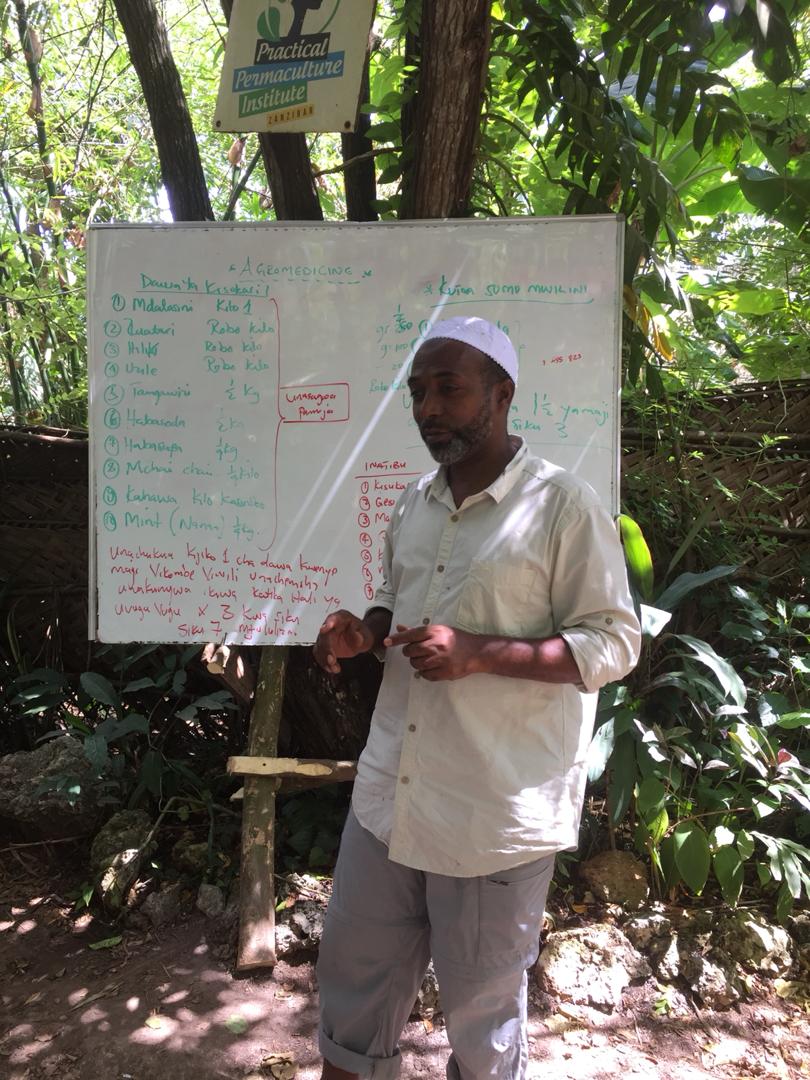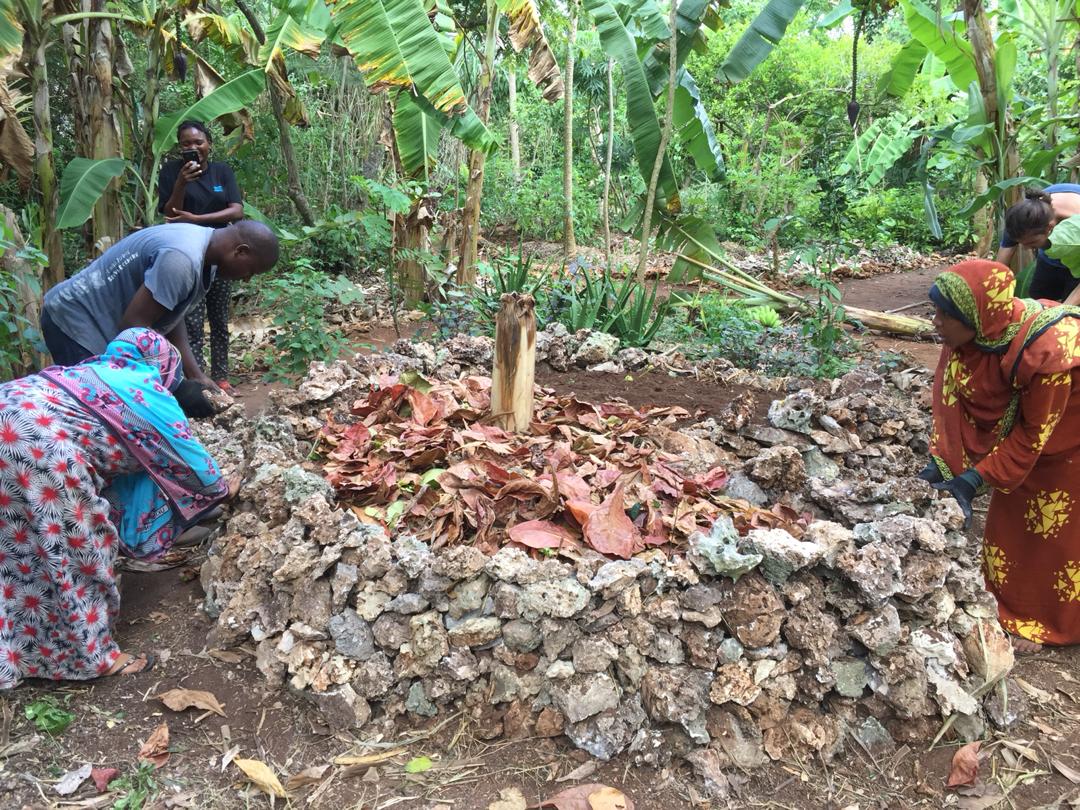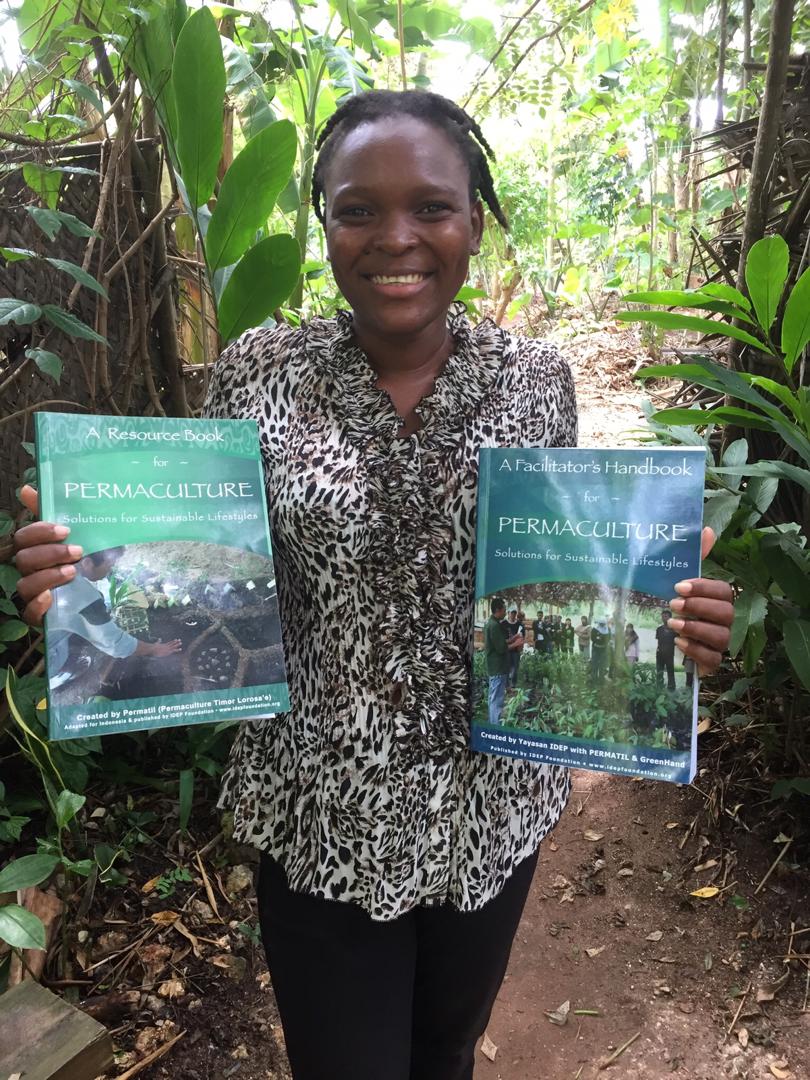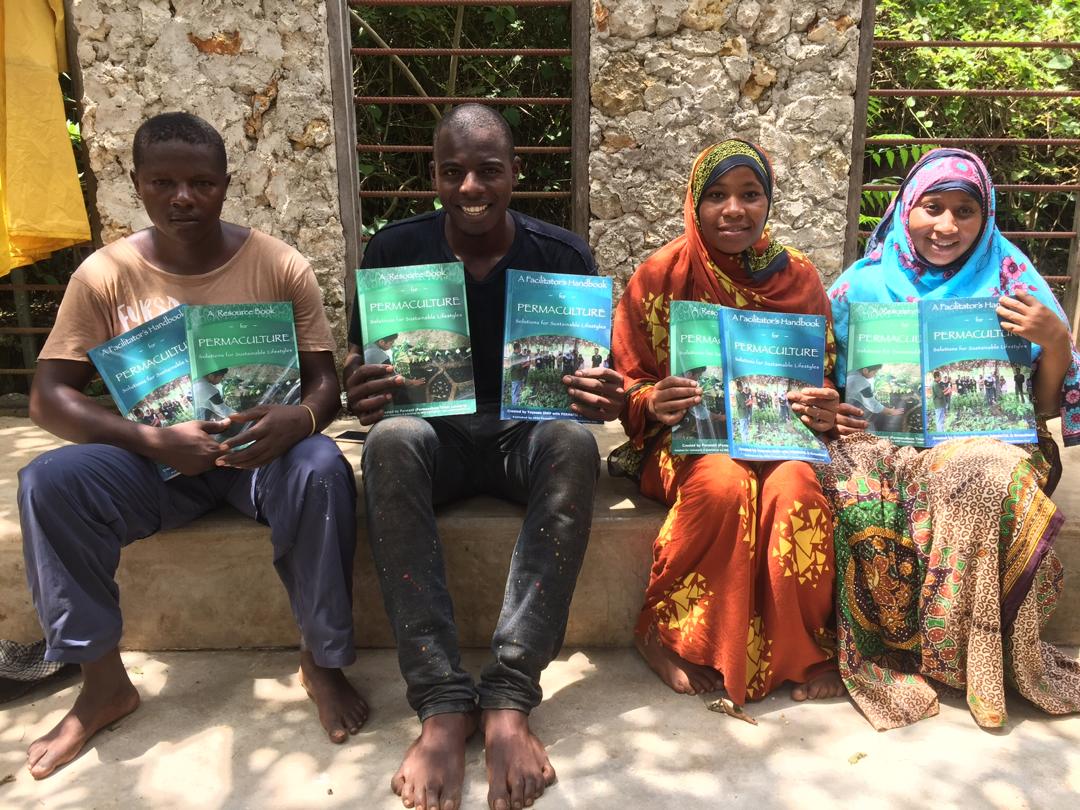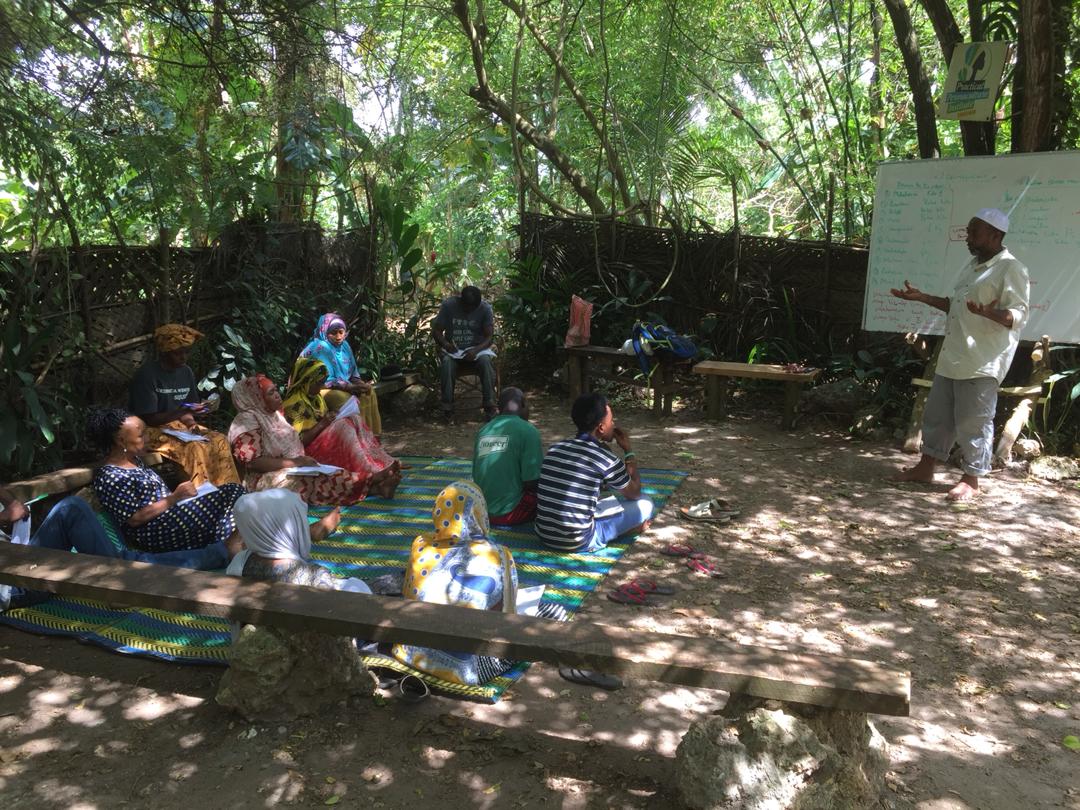Project Summary
Nutrition and Medicine Gardens – Erhöhter Zugang und Eigenproduktion von gesunder Ernährung und natürlicher Medizin für Schwangere, Mütter und Kinder
Project Manager
Country
Tansania
Status
completed in 2020
Budget
8.600 €
Links
Documents
Partners
Erbacher Stiftung
Project goals
Recruitment of at least 4 partner health stations
Raise awareness of the affected communities, at least 4
Creation of demonstration gardens in each of the participating clinics
Training of at least 20 mothers and young women in permaculture techniques and the production and processing of natural medicine
In 2018 we visited the Practical Permaculture Institute Zanzibar (PPIZ) and got to know its leader Laura Maier. Laura holds a M.Sc. in Global Change Management from the University for Sustainable Development Eberswalde and wrote her master’s thesis on permaculture on Zanzibar. She is co-founder of the PPIZ and since the beginning of 2017 she is working there as a manager. We were thrilled with the institute, its demonstration gardens and the various projects Laura has put into place in such a short time. Therefore, we offered her to support her work as a partner association in Germany as much as possible – although it does not quite comply with our strategy to turn former foreign students into project managers in their home countries. But her work is so good and her Kiswahili so fluent that this exception is well justified.
As in many countries of the global South, pregnant women, mothers and children in Zanzibar are also at an increased risk of being affected by diseases that can sometimes be fatal. Among other things, this situation can be attributed to a low-micronutrient diet and a lack of or incorrect knowledge about simple natural medicinal products. This is very tragic because Zanzibar has a wealth of natural plants that could significantly improve people’s nutrition and health.
Nevertheless, there is a lack of correct knowledge about the plants and their importance and uses. As a result, these plants are neither sufficiently protected nor cultivated. Instead, much of the people’s common practices are harmful to the fauna and soil (including burning organic matter, use of chemical pesticides, etc.).
The PPIZ is already training through its youth program young people in the practices of sustainable agriculture but recently also in practices of natural medicine in the tropics with the help of the literature of ANAMED – an association founded in Germany that focuses on research and knowledge transfer of natural medicinal plants and their simple application and processing techniques. In this project people are to be enabled by special trainings to consolidate their knowledge and then to pass it on to others. The trainings will be given at the village health stations.
The overall project goal is to improve the health of pregnant women, mothers and children. This should be done by the increased access and self-production of healthy nutrition and natural medicine. Project beneficiaries should be trained to grow healthy food and medicinal plants themselves and to be able to process them with simple means.
The project has the following objectives:
1) Recruitment of partner health stations
2) Sensitization of affected communities
3) Development of best-practice demonstration gardens
4) Training for mothers and young people
5) Starter kits for project beneficiaries
6) Establishment of production facilities of natural medical products
7) Follow-up and network building
The project is located at 4 health centers and a strategy is developed for each partner community to set up their own production facilities, which can generate an income for the participants in order to continue further locally organized training after completion of the project.
In particular, women are strengthened by the project and enabled to be self-sufficient with healthy food, natural medicine and a small income, without having to be dependent on men.



